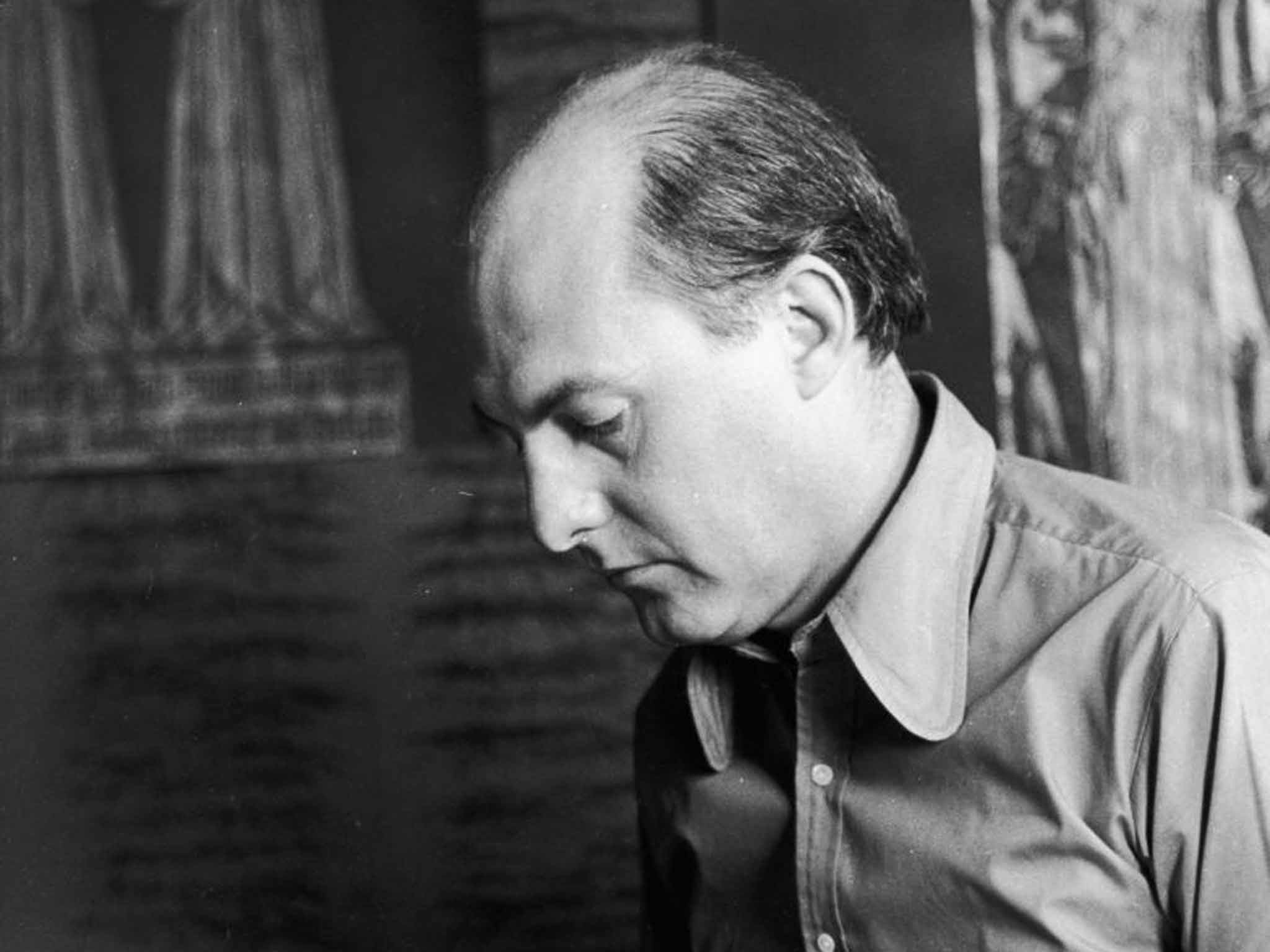Gordon Honeycombe: Author, playwright and newscaster who left ITN after article in support of striking firemen
He was twice named the nation's favourite newscaster in polls organised by the mass-circulation press

Although he could boast a range of accomplishments in literature and the theatre, Gordon Honeycombe's principal claim to fame was as a newscaster for Independent Television News (ITN) from 1965 to 1977, and for TV-am from 1984 to 1989. It was an era when newscasters remained comfortably seated behind desks, yet to acquire today's questionable technique of strutting urgently around the studio.
The ideal persona was that of a benign uncle – relaxed yet earnest, friendly yet authoritative. The tall, prematurely balding Honeycombe filled the role so convincingly that he was twice named the nation's favourite newscaster in polls organised by the mass-circulation press.
That was why the rancour surrounding his departure from ITN took everyone by surprise. By November 1977 he had already decided to quit at the end of the year, to concentrate on writing and other interests. But that month saw the start of a national strike by firemen, and Honeycombe wrote a passionate article for the Daily Mail in defence of their action and supporting their demand for higher pay.
David Nicholas, the new editor of ITN, immediately suspended him, believing that he had irreparably compromised the impartiality required of newscasters. Honeycombe resigned next day and joined the strikers on their picket lines at fire stations across the country.
His interest in the fire service stemmed from a book he had written the previous year, Red Watch. His fourth published work, he described it as a “documentary novel”, based as it was on a major hotel fire in Maida Vale in 1974 in which seven people died. The bravery of the firemen who rescued most of the residents made a deep impression on him.
“In six months researching Red Watch I had observed the depth of their courage, whether facing billowing fires or raging floodwaters, and I offered my own anecdotal evidence of their heroism,” he told an interviewer some years later. (The strike lasted until January 1978, when the firemen won their pay rise.)
Ronald Gordon Honeycombe was born in 1936 in Karachi, where his father worked for an American oil company. When he was 10 his family moved to Scotland and he attended Edinburgh Academy. Although he had won entrance to Oxford University he chose to carry out his National Service first, serving in the Royal Artillery from 1955 to 1957, mainly in Hong Kong, where he gained the first taste of his future profession by working as an announcer for the local radio station.
After demobilisation he went up to University College, Oxford, and graduated in English. During his second year there he contracted tuberculosis and spent several months in hospital. This gave him the opportunity to work seriously as a writer, using his enforced confinement to adapt the Miracle Plays for a modern audience. When he recovered he organised a production of the work and persuaded 100 students from his college to take part. Two years later the Royal Shakespeare Company staged it for three nights in Southwark Cathedral, entitled The Redemption.
This first taste of theatre prompted him to seek work as an actor. After being turned down by Laurence Olivier for the National Theatre he was accepted by the RSC and spent two years in spear-carrying roles. Seeing no future in this, he left, and after a full year fruitlessly applying for jobs he was recruited by ITN.
Working between bulletins, he began to achieve some success as a writer. By the time he left ITN he had produced four novels, along with two radio plays based on literary classics: Paradise Lost in 1975, and the following year Lancelot and Guinevere, derived from Malory's Morte d'Arthur. He rewrote the latter for the stage and it was presented at the Old Vic in 1980, with Timothy West playing Malory. The play ran for just six performances and was mauled by the critics. The Times dismissed it as “little more than an elaborated reading” while The Guardian characterised it as “an arthritic attempt to excite new interest in the Arthurian legend”. Small wonder, then, that Honeycombe reverted to writing books.
There followed non-fiction works about the royal family, as well as The Murders of the Black Museum, his most successful book. Based on the contents of the crime museum at Scotland Yard and first published in 1982, it spawned three updated editions, the most recent appearing in 2009.
In 1984 he was lured back to newscasting by TV-am, the recently launched provider of breakfast television. After five years of early rising, often in dismal weather, he decided to quit and start a new life on the other side of the world, in Perth, Western Australia. There he reconnected with the theatre, producing a revival of The Redemption, and became a permanent Australian resident in 1993.
Interviewed in 2013 he declared: “I still do voice-overs for local radio and television and acting roles still come my way.” He added that he had just completed his memoirs, as yet unpublished. A lifelong bachelor, he listed his recreations in Who's Who as bridge, crosswords and genealogy.
Ronald Gordon Honeycombe, newscaster and author: born Karachi 27 September 1936; died Perth, Western Australia 9 October 2015.
Join our commenting forum
Join thought-provoking conversations, follow other Independent readers and see their replies
Comments
Bookmark popover
Removed from bookmarks